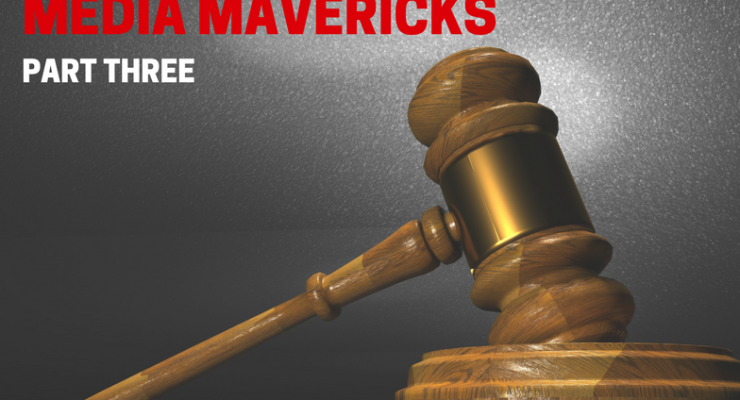
This is the third instalment in a four-part mini-series. Read parts one and two here and here, respectively.
Shane Dowling is well known as an online maverick. For four months last year, Dowling was in jail for contempt. The law caught up with him after he repeatedly breached a suppression order related to the Tim Worner and Amber Harrison court case.
As for whether it was all worth it, well — when Crikey asked if he’d blatantly ignore a suppression order again, Dowling wasn’t sure.
“Quite possibly. It’s hard to know. What had to happen is someone’s gotta take a stand and show how the suppression order rules are being abused,” he said.
And that is the crux of what Dowling’s website, Kangaroo Court of Australia, is about. He started to shine a light on what he says is widespread corruption in the judiciary, including the use of suppression orders to suppress freedom of speech. He had a court case of his own dragging on, discovered what he thought was corruption in the system and found there was no formal body to report it, and the media wasn’t interested.
He told Crikey that he considers himself a blogger, but does call himself a journalist from time to time: “I mainly call myself a journalist to wind the other journalists up.”
Dowling was in jail while True Crime News Weekly and, later, Independent Australia were “covering” the Barnaby Joyce affair last year, but he’s no stranger to publishing stories the mainstream media avoids. When there was a suppression order on naming Rolf Harris as the “famous Australian” charged with child sex offences in the UK, Dowling just went ahead and named him on his website. He also published a handful of posts about strenuously denied rape allegations against Bill Shorten in 2013 and 2014, which hadn’t then made it into the mainstream media.
Dowling sees all his work as being in the public interest, and says independent sites like his play an important role in the media landscape.
“I have no doubt if you took out the social media element, (Barnaby Joyce’s affair) would not have been reported. If it wasn’t for the pressure from social media and bloggers they wouldn’t have done that story,” he said.
Dowling has been running his site since 2011, and says it has been a learning curve.
“Mainstream media is contracting, and their standards are dropping and mine are increasing so we might meet in the middle,” he said. He takes donations, which cover his costs, but he hopes that one day he’ll make enough for it to support him full time.

Dowling is still facing a contempt charge for a comment he made in court in February, and will be sentenced later this month. A criminal charge laid against him for an email he sent to the court in 2016 was withdrawn a couple of weeks ago, and there are three defamation claims against him that are still before the courts.
Legal aid is representing him in court — he previously acted for himself, but lost his federal government department job when he was incarcerated, so he’s now eligible for the assistance.
Dowling says he doesn’t get his stories legally checked before he publishes, but he adds that doing so is no guarantee against legal action anyway. “I’m sufficiently versed in the law, and I’ve never been found guilty of defamation. I don’t get my stories legalled, but you have to wonder if the mainstream do as well,” he said, referencing the Daily Telegraph‘s current defamation case with Geoffrey Rush.
“The conventions and rules the legacy media have, they’ll pull it out of their head when they want to and they use that as a reason they can’t (publish), and other times they just go for it.”








Crikey is committed to hosting lively discussions. Help us keep the conversation useful, interesting and welcoming. We aim to publish comments quickly in the interest of promoting robust conversation, but we’re a small team and we deploy filters to protect against legal risk. Occasionally your comment may be held up while we review, but we’re working as fast as we can to keep the conversation rolling.
The Crikey comment section is members-only content. Please subscribe to leave a comment.
The Crikey comment section is members-only content. Please login to leave a comment.